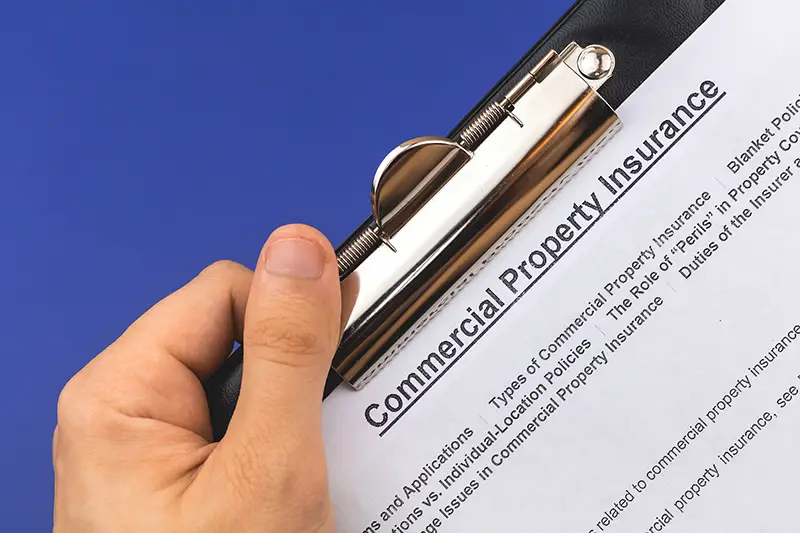Click here to get this post in PDF
For most business owners, their companies are their biggest investments. Like any other investment, you need to find ways to safeguard it. How do you protect your business property? It’s simple; insure it.
There are many risks that could lead to the end of your business operations. You don’t want to lose the investment you’ve worked on for several years. Fortunately, many insurance plans exist that can cover commercial property. However, you have to find one that suits your business. How will you know the right insurance provider to work with? This article sheds light on tips you should adopt during the selection process. Read on!
Consider the following factors:
1. Your Needs
Insurance policies cover various risks; hence, you need to identify what aspect of your commercial property needs coverage. Your needs should be your guiding principle. They’ll ensure you don’t miss any essential aspect that needs a cover.
Assess your business and identify possible threats that could render your business operations non-operational or lead to losses. The industry you’re in could help you identify your commercial property’s risks. For example, floods could be a risk if your business is near a lake. Fire could be a risk if you run a crude oil industry.
Ensure you have a list of these threats, no matter how basic, such as theft. The list will become a checklist if you’re looking for a commercial insurance provider Stratford-based, for example.
2. Insurance Provider’s History
Knowing an insurance provider’s history is important. It more or less determines the type of working relationship you’ll have with them. You’ll also know about their credibility in service provision. So, where should you get a glimpse of an insurance provider’s history? The internet is your go-to choice.
Google the commercial property insurance company. From this, check its reputation. Reputation refers to the public’s view of the company. Most of these views originate from the services the company offers. Be keen to note any negativity surrounding the company. Are they currently undergoing a lawsuit? Have they ever been involved in insurance fraud?
Check reviews as well. Reviews originate from clients who’ve previously or are currently working with the insurance provider. This means you can rely on what they say about the provider. Are there any clients complaining about the company’s claims and payout process? Have they failed to meet their end of the bargain at one point?
Once you’re done with the digging, ensure you choose a provider with good publicity and one with many positive reviews. This is more or less an assurance you’ll also have an easy time being in partnership with them.
3. Complete List Of Services And Coverage
Insurance policies differ based on the insurance provider. An insurance provider will offer a certain coverage based on their capabilities. Therefore, ask a provider for the list of services they offer on commercial properties. Do you see your needs on this list? If they aren’t on the list, don’t compromise and settle. There’s an insurance company whose services meet all your needs fully without compromising on certain aspects.
Once you’ve identified an insurance provider, ask what they can and can’t do under your chosen plan. It’s essential to know their limits to avoid situations that might lead to frustrations in the future.
4. Cost
Insurance providers offer their policies at different costs, even for the same plan and coverage. Therefore, you need to compare the premium you’ll have to pay with each provider. If you’re insuring your commercial property for fire and theft, check how much you’ll pay with different providers. This process can be lengthy if you choose to physically visit each potential insurance provider. As an alternative, you may ask for quotes from them online. Some insurers can give you a quote through emails and other digital platforms.
Once you have the quotes, compare the premium you’ll pay with the provider’s services. Is it reasonable? Are you getting the most out of your premiums? You must find a balance between services and costs.
After identifying your chosen provider, compare their costs with your budget. Is it within or beyond your budget? It’s best not to approach this short-term; consider looking at the future. Can you pay the premium at the intervals they’re offering without straining financially all year? If yes, go ahead and settle for them. However, if no is the answer, continue with your search until you find one you can comfortably pay for.
Consider asking if they offer bundle packages. Insurance bundle packages are those that cover several risks under one policy. These packages are cheaper than individual ones, and might even be more cost-efficient for your property.
Conclusion
Choosing the right insurance policy for your commercial property isn’t challenging. As long as you have proper guidance like this article gives, your selection process will be seamless. Just take your time and assess all the available insurance options for your property.
You may also like: Importance Of “Business Owners” Insurance
Image source: Depositphotos.com


